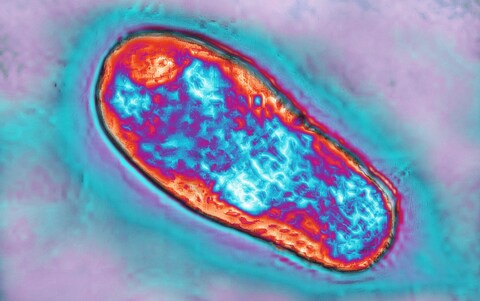Infection
Three humans catch incurable dog disease amid surge in infected imported pets
Three people have caught a bacterial infection from dogs this year following a surge in imported pets carrying the disease, the Telegraph can reveal.
Brucella canis is a bacteria that affects dogs, leading to infertility and a poor quality of life. Euthanasia is the only treatment option currently recommended by the government.
The disease can spread to people through canine reproductive fluids, but humans can be treated with a long and strong course of antibiotics.
Human tests for Brucella canis are performed by the Brucella Reference Unit (BRU) at the Liverpool University Hospitals NHS Foundation Trust, while animal tests are performed at the Animal and Plant Health Agency headquarters in Weybridge.
Data obtained by the Telegraph show 168 Brucella canis tests were processed by the NHS in 2021 and 149 in 2022. However, since the spike in animal cases in 2023 the rate has doubled. There were 107 tests performed at the BRU in the first four months of 2023, the most recent data available, putting the UK on track for 321 tests this year.
The bacterium brucella canis causes brucellosis in dogs and humans
Credit: Getty Images
The Telegraph understands three people tested positive for the disease so far this year, with all cases stemming from contact with infected dogs.
Only one named individual has tested positive – Wendy Hayes of Stoke, who caught it from a pregnant foster dog she took in last year from Belarus. Ms Hayes chose to put down all five of her own dogs as a precaution to prevent spread and has called for a ban on imported pets.
Dr Wendi Shepherd, Head of Emerging Infections and Zoonoses at UK Health Security Agency (UKHSA), told the Telegraph: “We have seen a small number of cases of Brucella canis in people in the UK this year.
“However, the risk to the general public in the UK is very low and the risk to people who have had close contact with an infected dog is low.
“From the small number of cases of the infection that have been reported in humans worldwide, the infection is usually mild, but people who have weakened immune systems, are pregnant, or are young children may be more likely to experience more serious infection.”
Just three canine cases of Brucella canis in UK before 2020
The UKHSA told the Telegraph that “all cases of human Brucella canis that UKHSA is aware of occurred following contact with a dog”.
Responding to a Freedom of Information request, the body added that it is “not aware of any instances of person-to-person transmission of Brucella canis in the UK”.
“A bespoke set of measures in response to a positive case include clinical management, laboratory testing, public health epidemiological investigation and follow-up. Actions depend on the specifics of the case,” it added.
The spike in human tests comes after a surge in cases among dogs.
The source of the disease is largely imported animals from Eastern Europe being sold as pets amid huge demand for family dogs during the pandemic.
Updated guidance on Brucella canis and the threat it poses to human health is expected on Monday.
Official data from the Animal and Plant Health Agency reveals just three confirmed canine cases of Brucella canis in the UK before 2020 (two in 2017 and one in 2018) and each was an isolated incident of an imported animal.
No dogs tested positive for the disease during the Covid-hit year of 2020. In the following years cases rose to nine, 36 and 55 in the following years, with each case potentially including multiple dogs.
The Government knows the country of origin for 84 Brucella canis cases from 2020, 2021 and 2022 and more than half (43) come from Romania, with Bosnia (eight), Greece (five) and Macedonia (five) the next biggest single contributors.
Romania is the single biggest source of imported dogs and saw a 50 per cent increase as a result of the pandemic puppy boom.

